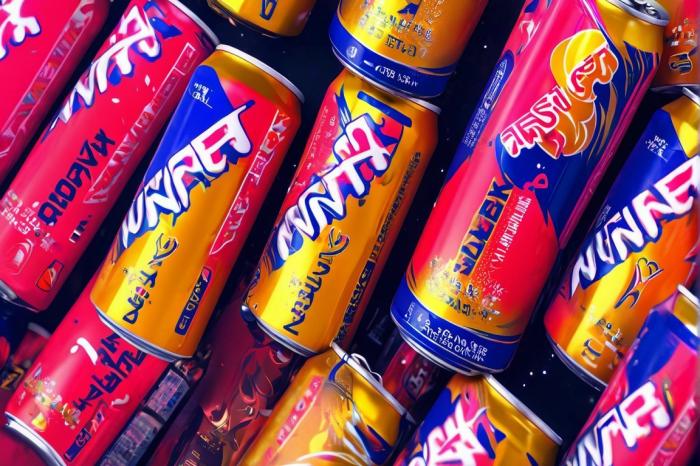Energy drinks are popular among many people for their quick boost in energy and alertness. However, for breastfeeding mothers, consuming these beverages raises concerns about their impact on breast milk and, consequently, the health of their baby. This article explores the potential effects of energy drinks on breast milk and offers guidance for mothers on how to manage their intake.
Understanding Energy Drinks
Energy drinks are beverages designed to provide a quick burst of energy. They typically contain a combination of the following ingredients:
Caffeine: A stimulant that can increase alertness and reduce fatigue.
Sugars: Often included to provide a quick energy source.
Vitamins: B-vitamins and other nutrients aimed at boosting energy metabolism.
Herbal Extracts: Ingredients like guarana and ginseng that are believed to enhance energy and focus.
While these ingredients can provide temporary boosts, they can also have various effects on the body, including potential impacts on breast milk.
Caffeine and Breast Milk
Caffeine is one of the main ingredients in energy drinks and is known for its stimulating effects. It is also a concern for breastfeeding mothers.
Caffeine Transfer to Breast Milk
Caffeine passes into breast milk, but usually in lower concentrations than in the mother’s bloodstream. On average, the caffeine level in breast milk peaks about 1-2 hours after consumption.
The amount of caffeine in breast milk is influenced by several factors, including:
Maternal Metabolism: How quickly a mother processes caffeine can affect the levels in her milk.
Amount Consumed: Higher caffeine intake results in higher levels in breast milk.
Frequency of Consumption: Regular intake can lead to more consistent caffeine levels in milk.
Impact on the Infant
Infants metabolize caffeine more slowly than adults, especially in the first few months of life. High levels of caffeine in breast milk can potentially cause:
Irritability: Caffeine can lead to restlessness and difficulty sleeping in infants.
Increased Heart Rate: High caffeine levels may cause a faster heart rate in babies.
Digestive Issues: Excessive caffeine can affect an infant’s digestion, leading to discomfort.
It is generally recommended that breastfeeding mothers limit their caffeine intake to 300-500 mg per day, which is equivalent to about 2-3 cups of coffee.
Sugar and Breast Milk
Energy drinks are also high in sugar, which can have implications for both the mother and the baby.
Effect on Maternal Health
Excessive sugar consumption can lead to:
Increased Risk of Gestational Diabetes: High sugar intake can affect blood sugar levels and increase the risk of diabetes.
Weight Gain: Regular consumption of sugary beverages can contribute to weight gain and obesity.
Managing sugar intake is important for overall health and can affect the quality of breast milk.
Impact on Breast Milk Composition
While sugar itself doesn’t directly alter breast milk composition, high sugar intake can affect maternal health, which in turn can impact milk production and quality. Maintaining a balanced diet is essential for optimal milk quality.
Herbal Extracts and Breastfeeding
Energy drinks often contain herbal extracts like guarana and ginseng. These ingredients can have various effects:
Guarana
Guarana contains caffeine and other stimulants. Its impact on breast milk is similar to that of caffeine, potentially affecting the baby’s sleep and mood. It is advisable to limit or avoid guarana in energy drinks while breastfeeding.
Ginseng
Ginseng is used for its potential energy-boosting and stress-relief properties. However, its effects on breastfeeding are not well-studied. There are concerns about its impact on hormonal balance and potential side effects for both mother and baby. Consulting a healthcare provider before consuming ginseng is recommended.
Guidelines for Consuming Energy Drinks While Breastfeeding
Moderation is Key
If you choose to consume energy drinks, do so in moderation. Limit your intake to avoid excessive caffeine and sugar. Consider alternatives that have lower caffeine levels and fewer additives.
Monitor Your Baby
Pay attention to how your baby reacts after you consume energy drinks. Look for signs of irritability, difficulty sleeping, or digestive issues. If you notice any adverse effects, consider reducing or eliminating energy drink consumption.
Choose Healthier Alternatives
Opt for healthier alternatives to energy drinks, such as:
Water: Staying hydrated is essential for overall health and milk production.
Herbal Teas: Caffeine-free herbal teas can be a soothing and hydrating choice.
Fresh Juices: Natural fruit and vegetable juices provide energy without added sugars and stimulants.
Consult with Healthcare Professionals
If you have concerns about your diet and its impact on breastfeeding, consult with a healthcare provider or a lactation consultant. They can offer personalized advice based on your health and your baby’s needs.
Potential Risks and Considerations
Nutritional Imbalance
Relying on energy drinks for a quick boost can lead to poor dietary choices. Ensure your diet includes a variety of nutrients to support both your health and breastfeeding.
Long-Term Health Effects
Regular consumption of energy drinks can have long-term health implications, including increased risk of cardiovascular issues and metabolic disorders. Prioritize a balanced diet and healthy lifestyle.
Individual Variability
Each mother’s response to energy drinks may vary. Individual health conditions, metabolic rates, and overall diet can influence how energy drinks affect breastfeeding.
See also: What Foods to Avoid While Breastfeeding: A Guide for Nursing Mothers
Conclusion
Energy drinks can have several effects on breastfeeding, primarily due to their caffeine, sugar, and herbal extract content. Moderation is crucial to minimize potential risks. Opt for healthier alternatives and consult healthcare professionals to ensure that both your health and your baby’s well-being are prioritized. By making informed choices, you can balance your energy needs with maintaining a healthy breastfeeding routine.


